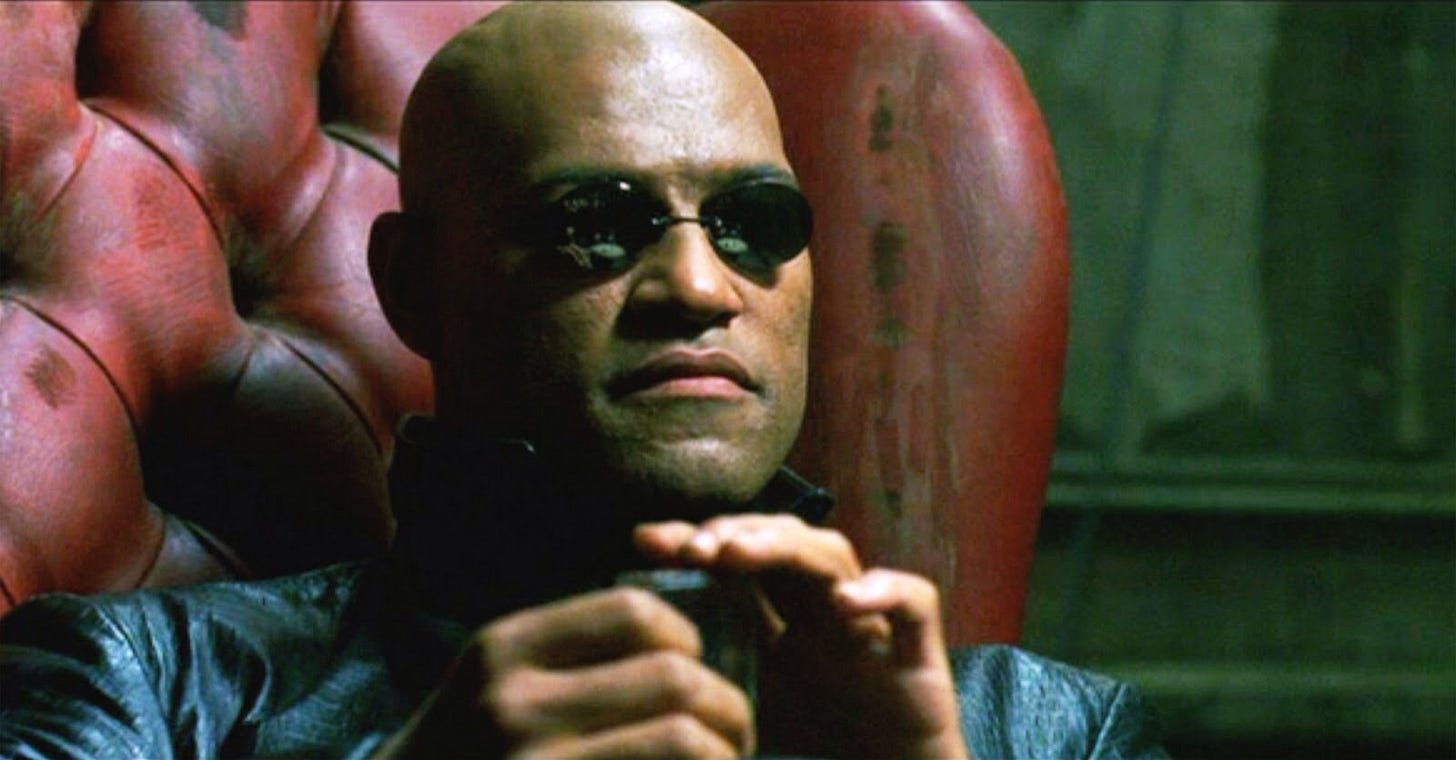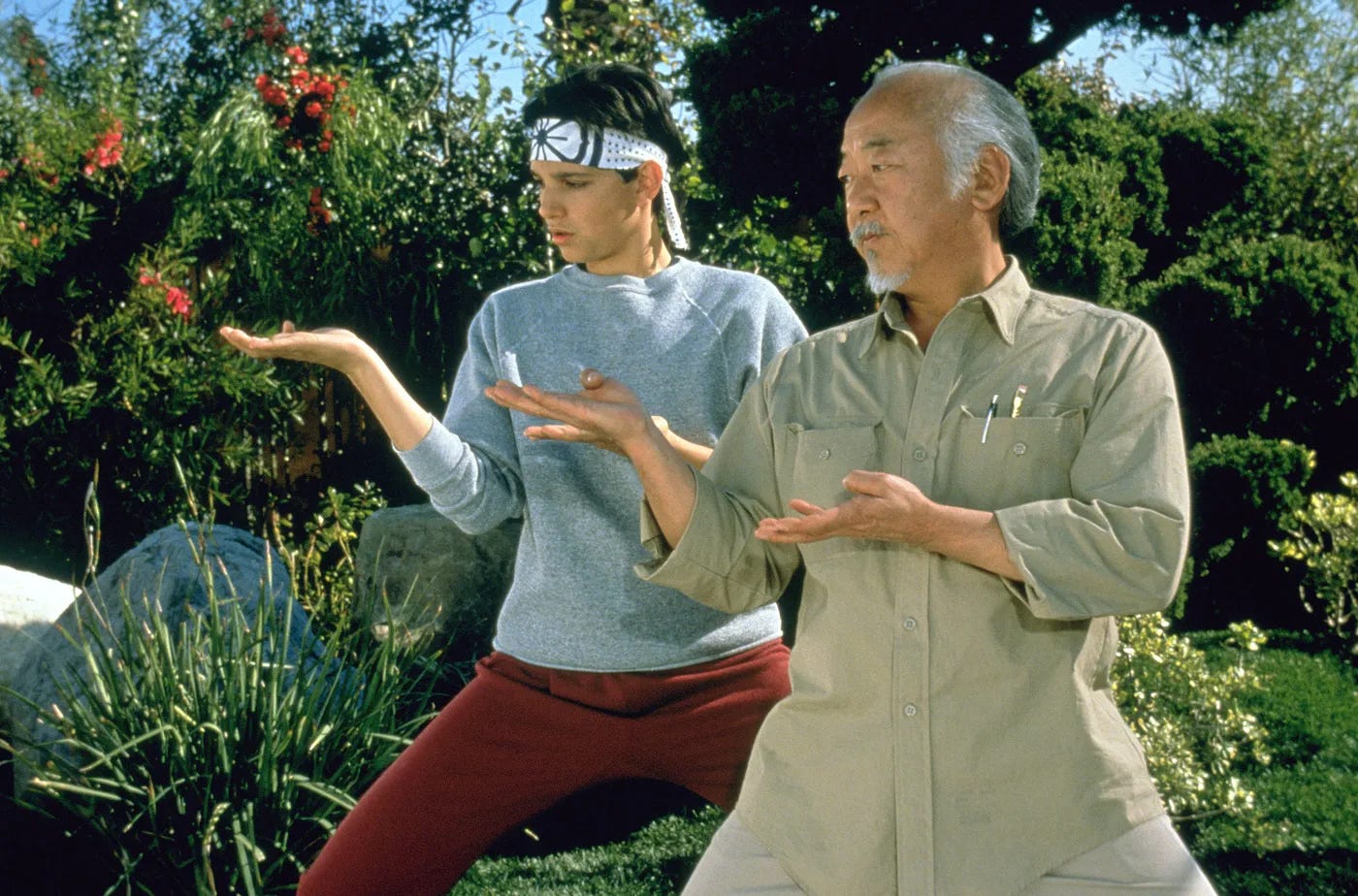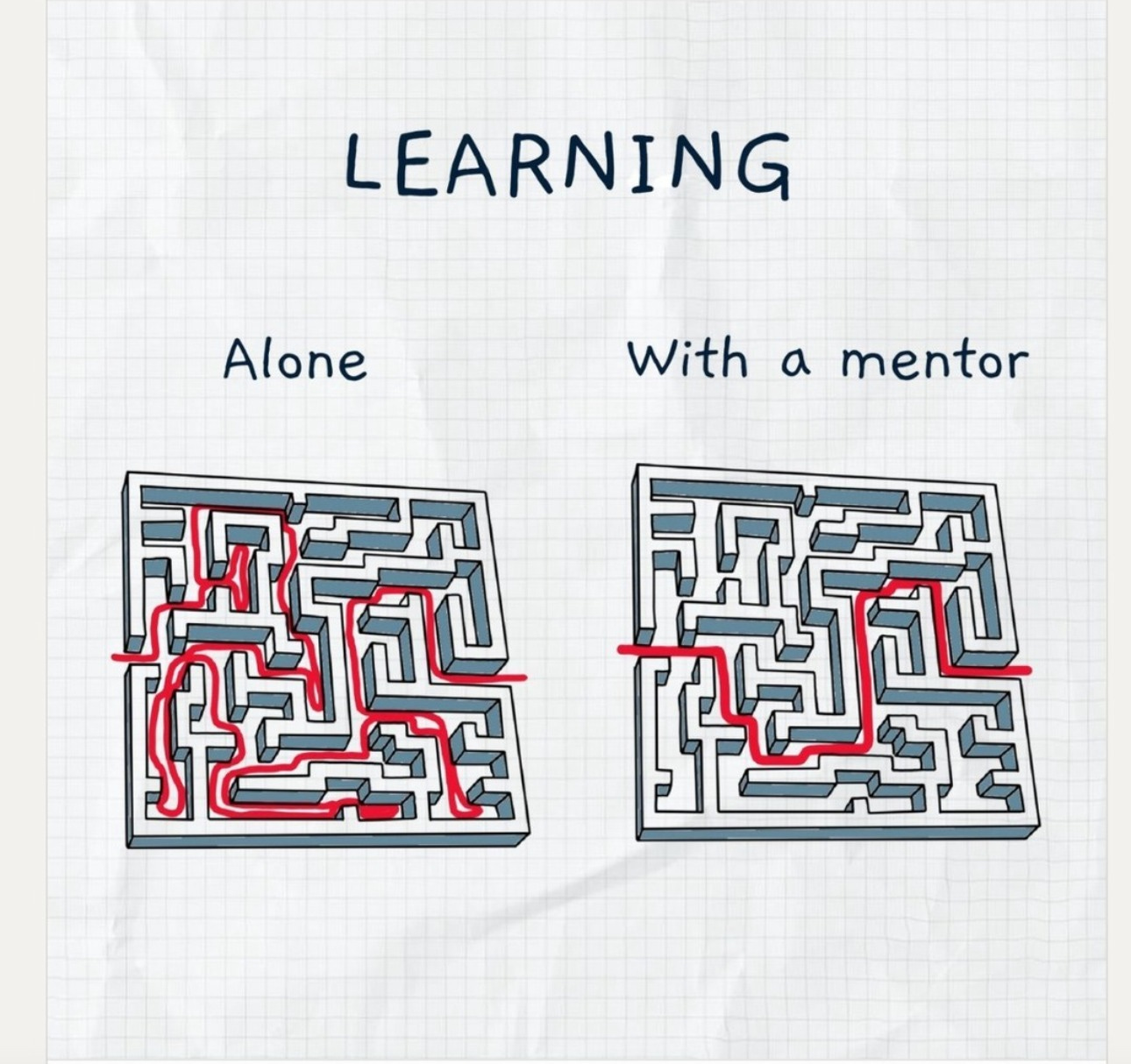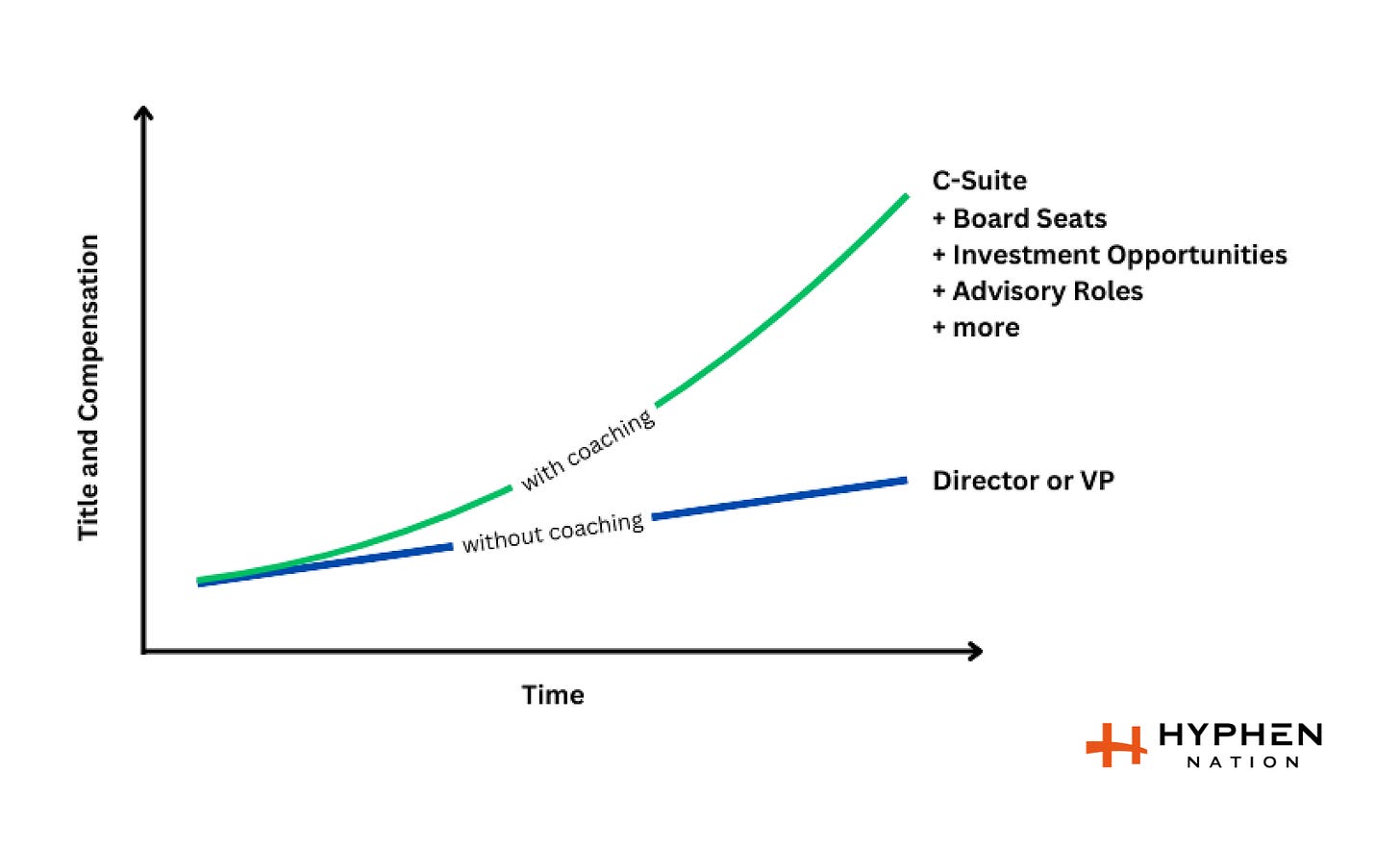Why Having a Coach Matters
Mentors and coaches can supercharge your career trajectory and earning potential, but you have to be willing to bet on yourself first.
Sensei. Shifu. Master. Teacher. Coach. These are all different names for the same role, a mentor. Being teachable and having an insatiable hunger to learn are traits that most successful people have. You can’t get better at something, unless you are self-aware enough to recognize that you have room for improvement and need help.
I grew up playing tennis and basketball and had coaches teach me the right way to play. Whether it was form or strategy, I needed them to correct my mistakes in order to be better at the game. I’ve been playing golf for thirteen years now. My wife wanted to play a sport together when we grew older and I agreed to take lessons with her. I took a few lessons and was hooked, but I hadn’t taken another lesson again since I started. I became obsessed with golf, but I was a mediocre player at best. I struggled with my swing and was a 20+ handicap, if I even bothered to keep one. I would just watch YouTube videos or take tips from friends, stubbornly thinking I could improve my game on my own. It wasn’t until I decided to take lessons from a professional coach again that I started to improve and see real progress. My handicap continues to go drop and I’m gaining confidence which is a huge difference maker in anything you do.
“There is a difference between knowing the path and walking the path.”
“I can only show you the door. You have to walk through it.”
- Morpheus, The Matrix
What I realized was that if I invested in coaching and found the right person to tell me what I needed to improve, I could start seeing real returns and results. Watching YouTube or TikTok videos or reading books that apply generally may not be applicable to you or your situation. You need someone to tailor their advice specifically to your needs and areas of development. My bad swing habits aren’t the same as someone else’s, but a coach who has seen many people with a pattern of similar problems knows how to address mine. It’s always easier for someone who has experience to easily identify your areas of development to hone in on and give advice and feedback to fix. A professional coach is able to customize tips and focus on the things you have to work on and build upon that over time, because they have context. When friends give you advice, they are only addressing the symptoms. The most important thing a coach can do is identify the root of your problems that is causing the other symptomatic issues. You can only stop a disease if you can find the source.
This doesn’t only apply to sports, this applies to your professional life as well. It’s important to have an experienced coach or mentor who can spot patterns and give you constructive feedback on how to be better, all the while giving you growing confidence to be successful in your endeavors. You can’t always trust your colleagues to give you honest feedback, but a professional coach is paid to not hold back. There’s a reason that the best athletes in the world still have coaches, because even players in the top 99.9th percentile can make mistakes and revert to bad habits that need to be resolved. Many of the top CEOs in the world also have coaches and mentors, because they need to hear feedback from someone they respect and trust that knows them and knows their strengths, but also their flaws and weaknesses.
“Everyone needs a coach. It doesn’t matter whether you’re a basketball player, a tennis player, a gymnast or a bridge player. We all need people who give us feedback. That’s how we improve.”
- Bill Gates
Mentor vs. Coach
What’s the difference between a mentor and a coach? A mentor is a trusted advisor who provides guidance and support to help their mentee grow personally and professionally. Mentors share their experiences and expertise to help mentees navigate challenges, set goals, and develop their skills. Mentoring is a more holistic approach that focuses on the mentee as a whole person. Mentors can also help mentees expand their network and build confidence. Mentorship is usually much more informal and relationship-based guidance. Mentees are responsible for driving the sessions and steering the relationship based on their needs and areas of development. A mentor gives advice, but it’s up to the mentee to decide what to do with that advice.
A coach helps people overcome specific challenges and improve their performance in a particular area. Coaching is more structured and objective-driven and focuses on skills as well as specific goals and tasks. Coaches provide guidance and feedback to help people find their own answers and think for themselves. It is usually a formal and professional relationship in which a certified coach is contracted for a certain period of time. A coach is training and up-skilling you to achieve your goals. Unlike mentors, coaches are more likely to drive the sessions and don’t necessarily get into personal experiences the way that a mentor does with their holistic view.
Although mentors and coaches differ in many ways, they both also share many similarities. They require trust between both parties and a desire for growth. They both strive to help the mentee or student develop self-awareness. The ultimate goal for coaching and mentoring is skill development, expanding mindset and thinking, and unlocking potential, all in the hopes of career advancement.
“Walk on road. Walk right side, safe. Walk left side, safe. Walk middle, sooner or later, get squish, just like grape.”
- Mr. Miyagi, The Karate Kid
Knowing What You Don’t Know
The biggest step to acknowledging you need help, is being self-aware enough to know what you don’t know. It’s easy to be stubborn and assume that there’s nothing you can’t learn or read in a book. The issue is that those books weren’t written for you specifically, they were written for as big of an audience it could be for it to sell more copies. If you went to a doctor, and she gave you generic advice to eat healthy, exercise and take your vitamins, you would probably be looking for a new doctor. You want a doctor who knows your vitals and blood test results, who understands your body and your habits, and can give you specific treatments and prescriptions based on that information.
Why would you expect it to be different when you are looking for career advice? Reading books or watching talks on YouTube can only get you so far. Finding someone who has successfully navigated the same career path as you are going down is much more relevant and applicable. If you are a a director of finance, you ideally want to have a CFO as a mentor. If you are a marketing manager, you should find a CMO to be your mentor. In lieu of having access to a CFO or CMO, you can find an executive coach who has previous experience in finance or marketing and primarily coaches finance and marketing executives.
Where You Want to Be
You should find a mentor or coach who can help get you where you want to go, but first you need to figure out your goals. Do you know what your goals and aspirations are? What do you want to achieve in your career. Wanting to make money is very different than wanting to become a CEO. Wanting to have influence and impact isn’t the same as wanting to start your own business. Before you start any journey, you need to know your ultimate destination. You can’t write a game plan if you don’t know what it means to win the game.
If someone has already reached the top of the mountain, it’s a lot easier for them to tell you how to get there. But they will need to know where you want to go, so they can advise you accordingly. They will know all of the treacherous pitfalls to avoid, as well as the shortcuts to save you time. A good mentor or coach can help you navigate your career and will likely help open doors for you on the way to the top. If someone is willing to sacrifice their time to mentor you, then it’s clear that they like you and have a vested interest in seeing you succeed. They will introduce you to their network which will no doubt accelerate your progress. It’s like hitting one of those turbo boosts in Mario Kart. Hit the right one and it can catapult you into the lead.
Take a Risk
Is there someone whose career or work you really admire? Maybe someone who you follow on LinkedIn that writes posts that really resonate with you. Luke Skywalker went to the remote planet of Dagobah to find the hermit Jedi Master Yoda and beg him to take him on as his padawan. Daniel Larusso badgered the reluctant building maintenance man, Mr. Miyagi, to teach him karate. Sometimes it takes some boldness and a little persistence to persuade someone to be your mentor.
When I was starting my first company, I read marketing guru Guy Kawasaki’s book The Art of the Start. I really appreciated his insights and decided to cold email him to have coffee on a whim. We started to meet regularly at his ice hockey rink in Menlo Park. At the time, Guy already had a huge following and was an influencer before there was social media. But I had built a rapport with him over email and was generous with his most precious asset: his time. We’ve remained friends over the years, and I am still grateful for his mentorship during that season of my life.
Shoot your shot. The worst that can happen is that they say no or ignore your emails, because anyone worth looking up to is probably very busy and in demand. Don’t take it personally and move on to the next one. Or you can try again later, because you never know if they are not interested or you just reached out at a bad time.
“It is our choices, Harry, that show what we truly are, far more than our abilities.”
- Albus Dumbledore, Harry Potter
Invest in Yourself
The hardest part about investing is waiting to see the results. In this world of instant gratification, it is even harder to wait. If you had invested $1,000 in Nvidia stock just five years ago, it would be worth $26,280 today. If you invested $1,000 ten years ago, it would be worth $244,560. But hindsight is 20/20, and there are no guarantees of returns like these when you invest in anything. Few people would have predicted a chip that was used for graphics could power the AI revolution.
Investing in yourself is no different, it takes time to see progress and results, and there is no guaranteed financial benefit. Ideally if you invest your time and money into a coach, you should see both intentional personal and professional development which leads to promotions and more opportunities. The alternative is not investing in yourself and hoping that what you’re currently doing will be enough to get you where you want to go. The problem with that mentality is that you’re expecting someone else to give it to you, when in reality you have to go out and take it. Your career will most likely plateau without the benefit of others to help you get there.
I was told by a partner at Goldman Sachs that if someone is a director for five years, then it’s likely that they’ll never become a managing director, because their window (shelf-life) has already passed. You have to know all the things it takes to become a managing director long before you even become a director, so you know the right moves to make and things to say to line up the next promotion to MD. The only way to know what it takes, is to have a mentor who can give you that sage advice.
What most people don’t realize is that once you break into the C-Suite, it is a force multiplier for earnings and opportunities. It unlocks access to deals and rooms that were previously unavailable to you before the title change. You become more eligible for board director openings. People seek you out for investments and advisory roles in their companies because of your title (because they want you on their investor decks for social proof). You get asked to speak on panels at conferences and invites to exclusive events where you build even more valuable connections. All of these open yet more doors that lead to more opportunities that you can’t even put a price tag or value on.
Think of the math this way: if you have a coach, they can help you to accelerate your career progression and as a result, your earnings. If you get promoted faster, the coaching will pay for itself. An executive coach as a manager or director might cost $60-80K a year (for a C-suite more like $100K or more) and that promotion from manager to director or director to VP will be worth far more than that. But if you compound those incremental earnings starting sooner rather than later, multiplied by all of the other opportunities and offers you will start to get, you will wonder why you waited so long to invest in yourself in the first place. If you’re a founder or own significant equity in your company, coaching will also help you to be a better leader and increase the overall value of the company and your equity. You didn’t hesitate to pay for college or graduate school to improve your chances at getting a job, why would you suddenly think that getting a coach isn’t worth the investment? It’s a no-brainer, especially if your company is willing to sponsor one for you.
“Boys, you must strive to find your own voice. Because the longer you wait to begin, the less likely you are to find it at all. Thoreau said, ‘Most men lead lives of quiet desperation.’ Don’t be resigned to that. Break out!” - John Keating
Because of the Bamboo Ceiling, there are far fewer experienced Asian American mentors who have reached the pinnacles of Corporate America that can advise and guide high potential leaders. We must proactively seek out mentors who may or may not be Asian. Some people might think that they’ll just figure it out themselves, but imagine trying to find a treasure without a map. It’s like building IKEA furniture without the instructions. Many of the people who make it to the top, have the benefit of people in their family or networks that have given them formal or informal mentoring throughout their entire lives. If you’re an immigrant or a child of immigrants, more likely than not, you will not have this benefit. Hard work alone is never enough. You will be seen as a workhorse and treated as such if you think that effort and output will get you to the top. You need to learn how to manage people above and below you, how to advocate for yourself and get credit for work, and how to navigate the corporate politics of your specific workplace.
For many Asians, admitting you need help or asking for it is the biggest hurdle. It is not in our culture to acknowledge weakness, but we also avoid troubling others for help when we need it. We view seeking assistance from others as a burden. In a way, somehow both pride and humility keep us from finding the mentorship and coaching we desperately need. Getting an executive coach isn’t a sign of weakness, it’s a display of courage, demonstrating your willingness to learn from your mistakes and unlock your full potential.
The things I write about in my essays are not groundbreaking. The reason my essays have gone viral and resonate with people is because I put them into the context of the Asian American experience. When you put things into the right context for someone, a light switch turns on, and it can have a life-changing impact. When you have a mentor or coach who is able to put things into perspective and context for you, it does the same thing. Especially from someone who is rooting for you and is your champion. Because when you succeed, they succeed.
There is nothing worse than receiving advice without a practical way to apply it. I want to do everything I can to nurture the next generation of AAPI business leaders and I am fortunate to have the network and resources to do so. I have partnered with my friend and fellow Stanford Graduate School of Business alum, Michael Takagawa, founder and CEO of Corporate Edge, to help AAPI professionals who are looking for executive coaching with his Asian Leadership Center. Mike started his career in brand marketing at P&G, Colgate Palmolive, and Kikkoman International in roles from President, COO and Vice President. He started Corporate Edge in 2005 and they have been Kaiser Permanente’s preferred partner having coached hundreds of its senior leaders. They have also worked with Adobe, Genentech, AAA Insurance, Blue Shield, and Salesforce, in addition to numerous successful startups. Mike himself has been a long-time mentor for organizations devoted to the development of women executives. He teaches leadership at the Stanford GSB and was selected as a Fellow for Stanford’s Distinguished Careers Institute.
Mike and I share a common passion for helping Asian American executives level up and realize their full potential. He has thoughtfully hand-picked coaches who are Asian American or have worked with many Asian American professionals, because cultural context matters when you are coaching. Whether you work for a company that will sponsor the cost of an executive coach or if you have to pay out of your own pocket, we will figure out some options for you. The most important thing is to take the first step and bet on yourself. If you are interested in learning more, please fill out our interest form.











Dave - thank you for writing this. When I started my new job, my first thought was I needed to find a mentor. Now I'm positive I need a coach and to lift my vision up and wider. Will look into the services here.
Very insightful! I was inspired by your article about the immigrant scarcity mindset and have learned a lot from you. After experiencing many challenges you mentioned first hand, I became a coach myself wanting to help people like me. Thank you for advocating for the talented yet a bit quite Asian immigrant community!